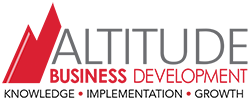Cash Flow Tips
Profit and cash flow are not the same thing. A business can still go broke whilst making a healthy profit just by not having enough financial reserves to meet its commitments.
Cash flow management is the fundamental and essential responsibility of the Business Owner or General Manager. A good cash flow manager reviews cash flow needs for the next week, next month, next quarter and plans for any large cash need before it becomes a crisis.
Remember that cash flow management is more than just what’s happening with accounts receivable and payable. It also includes sales, raising finance through loans/overdrafts or sale of assets, controlling stock…
Sales and Marketing
-
A regular and dependable volume of sales is a major help to cash flow planning. So systemise your sales and marketing as far as practical to ensure you have a regular level of enquiries and a strong conversion rate.
-
Require payment in advance. If that’s not possible invoice quickly on shipment of goods or services.
-
Negotiate favourable payment schedules in your terms and conditions – make sure you increase the price to allow for any increased risk and costs.
-
Establish late payment penalties as part of your terms and conditions – and enforce them
-
Offer rewards for early payment
Accounts Receivables
-
Only provide credit after a credit history has been established. Require credit applications and check references
-
Have a minimum dollar amount for orders before granting credit
-
Have your customers pay by credit card or get authority to debit their bank account. That way you can process payments immediately and you do not have to wait for customers to send the cheque
-
Stop extending credit to slow payers – you are not a bank
-
Make use of credit insurance
-
Update your credit control and accounts receivable processes and ensure your team are trained to utilise them. Review your 30/60/90 accounts payable reports at least monthly.
-
Stop training your customers to be slow payers – if they are late on paying in accord with agreed terms and conditions then initiate recovery procedures.
Expenses and Accounts Payable
-
Pay your bills promptly. After you build a history of payment negotiate extended payment terms – a supplier will often give a good customer 30 to 90 day terms
-
Keep overheads to a minimum. Before purchasing something set increased sales goals to justify and fund the expense.
General Cash Management
-
Review your cash position at least weekly.
-
Review your P&L at least monthly. Get your accountant and financial advisor to show you how to interpret it
-
Invest your cash in hand to maximise its earning potential
-
Establish a line of credit with your bank before you need it
-
To make sure you can move quickly to borrow if needed, keep an eye on your current ratio (assets over liabilities – at least 2:1 is good) and quick ratios (liquid assets divided by current liabilities – should be over 1:1)
Establish good internal controls for handling cash. Use different people to reconcile than you use to deposit cheques or cash.






